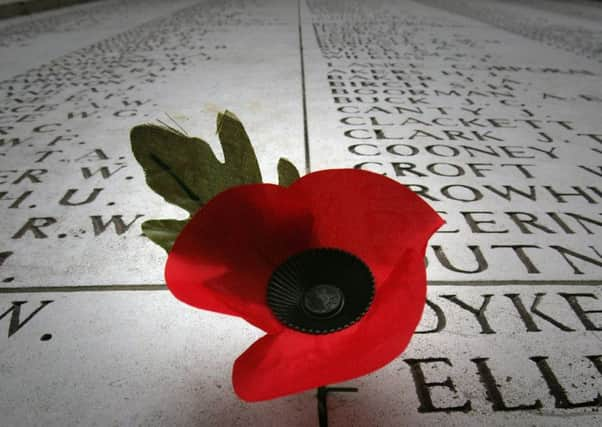Tom Peterkin: War shouldn’t be used for political points


Monday sees the Commonwealth Games move over for a Commonwealth-themed service at Glasgow Cathedral remembering those who died in the First World War.
Advertisement
Hide AdAdvertisement
Hide AdThe 100th anniversary of the date Britain entered the war will be the first of many events, including what will undoubtedly be a very moving drumhead service in Edinburgh a week later, which will be witnessed by a 9,000-strong congregation on Edinburgh Castle Esplanade.
Announcing details of the multi-faith drumhead service attended by troops and veterans, the Rev Norman Drummond, chairman of the Scottish Commemorations Programme, called on people to see what could be learned from the terrible events of 1914-18.
One suspects, however, that in the current political climate there will be those who will be keener on re-interpretation for their own political purposes than learning per se.
Indeed, this process began some time ago. It was inevitable that David Cameron’s decision to stage high-profile events remembering the shared sacrifice of those from across Britain would be viewed in the context of the Scottish independence referendum.
And already we have seen some ill-chosen words from both sides on the subject. It was last year that the SNP MSP Joan McAlpine suggested that Monday’s events would be “jingoistic” and seen as a cynical attempt to boost Britishness ahead of the referendum.
McAlpine said the “outburst of hysterical patriotism in 1914” represented “the worst of British – arrogance, self-delusion and a desire to dominate on the world stage”.
McAlpine’s view is strongly disputed by those historians who believe that the sacrifice, albeit catastrophic, was in a just cause and prevented domination by a militaristic German state.
On the other side of the debate, the former Scottish secretary Lord Lang of Monkton angered the SNP earlier this year when he told the House of Lords that splitting up the Union would “dishonour the sacrifices made in common cause of those who died for the UK”.
Advertisement
Hide AdAdvertisement
Hide AdPerhaps it is inevitable that, in this year of all years, today’s political issues will be discussed in the context of the war that was supposed to end all wars.
But politicians would be well advised to keep their utterances in perspective. Using those who made the ultimate sacrifice as pawns in today’s constitutional debate is perhaps not the best way to honour their memory.